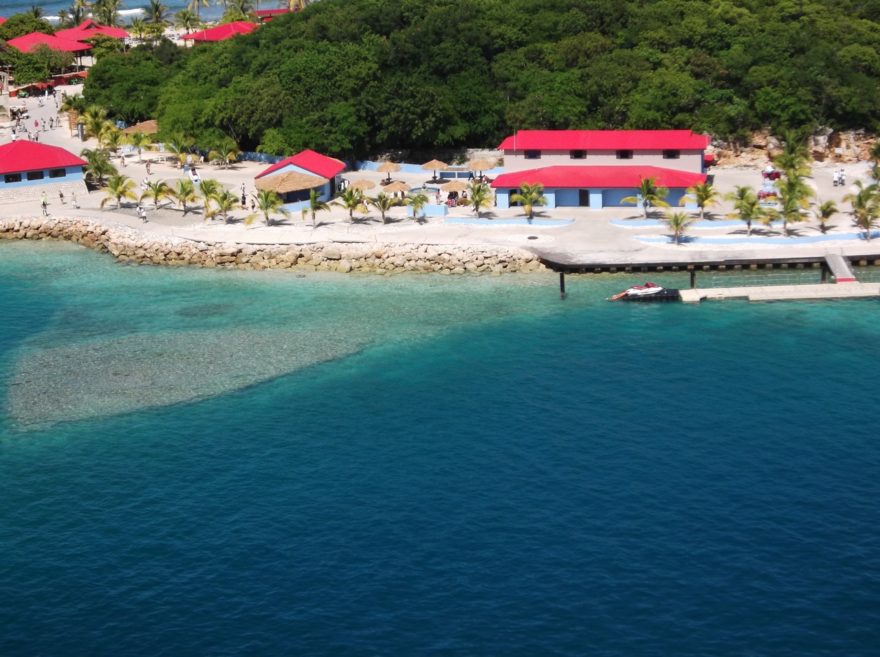How would you like to pay zero taxes on your investment income, including interest, dividends, and capital gains? The only downside is that you have to live in a beautiful warm beach town, where the high is usually 82 degrees and the low in the winter is around 65.
If this sounds appealing to you, you should learn more about the unique tax laws of Puerto Rico. As a US territory, any US citizen can relocate to Puerto Rico, and if you make that your home, you will be subject to Puerto Rico taxes and may no longer have to pay US Federal Income Taxes. You can still collect your Social Security, use Medicare, and retain your US citizenship. (But not vote for President or be represented in Congress!)
Citizens of Puerto Rico generally do not have to pay US Federal Income Taxes, unless they are a Federal Employee, or have earned income from the mainland US. This means that if you move to PR, your PR-sourced income would be subject to PR tax laws. In 2012, PR passed Act 22, to encourage Individual Investors to relocate to PR. Here are a few highlights:
- Once you establish as a “bona fide resident”, you will pay zero percent tax on interest and dividends going forward.
- You will pay zero percent on capital gains that accrue after you establish residency.
- For capital gains that occurred before you move to PR, that portion of the gain would be taxed at 10%, (reduced to 5% after you have been in PR for 10 years). So if you had enormous long-term capital gains and were facing US taxes of 20% plus the 3.8% medicare surtax, you could move to PR and sell those items later this year and pay only 10% rather than 23.8%.
- The application for Act 22 benefits costs $750 and if approved, the certificate has a filing fee of $5,000. The program sunsets after 2036. This program is to attract high net worth individuals to Puerto Rico, those who have hundreds of thousands or millions in investment income and gains. If your goal is to retire on $1,500 a month from Social Security, you aren’t going to need these tax breaks.
To establish yourself as a “bona fide resident”, you would need to spend a majority of each calendar year in Puerto Rico, meaning at least 183 days. The IRS is cracking down on fraudulent PR residency, so be prepared to document this and retain proof of travel. Additionally, PR now also requires you to purchase a home in PR and to open a local bank account to prove residency. (Don’t worry, PR banks are covered by FDIC insurance just like mainland banks). Details here on the Act 22 Requirements.
Note that Social Security and distributions from a Traditional IRA or Pension are considered ordinary income and subject to Puerto Rico personal income taxes, which reach a 33% maximum at an even lower level than US Federal Income tax rates. So, Act 22 is a huge incentive if you have a lot of investment income or unrealized capital gains, but otherwise, PR is not offering much tax incentives if your retirement income is ordinary income.
If you are a business owner, however, and want to relocate your eligible business to Puerto Rico, there are also great tax breaks under Act 20. These include: a 4% corporate tax rate, 100% exemption for five years on property taxes, and then a 90% exemption after 5 years. If your business is a pass-through entity, like an LLC, you may be eligible to pay only 4% taxes on your earnings. If you are in the US, you could be paying as much as 37% income tax on your LLC earnings. Some requirements for Act 20 include being based in PR, opening a local bank account, and hiring local employees.
For self-employed people in a service industry, PR is creating (new for 2019) very low tax rates based on your gross income, of just 6% on the first $100,000, and a maximum of 20% on the income over $500,000. Click here for a chart of the PR personal tax rates and the new Service Tax.
A comparison of Act 20 and Act 22 Benefits are available at Puerto Rico Business Link.
When most people talk about tax havens, they would have to renounce their US citizenship (and pay 23.8% in capital gains to leave), or they’re thinking of an illegal scheme of trying hide assets offshore. If you have really large investment tax liabilities or have a business that you could locate anywhere, take a look at Puerto Rico. Besides the tax benefits, you’ve got great weather, year round golfing, US stores like Home Depot, Starbucks, and Walgreens, and direct daily flights to most US hubs, including DFW, Houston, Miami, Atlanta, New York, and other cities.
Puerto Rico is still looking to rebuild after the hurricane and it’s probably not the best place to be a middle class worker, but for a wealthy retiree, it might be worth a look. Christopher Columbus arrived in Puerto Rico in 1493 and the cities have Spanish architecture from the seventeenth century. I’ve never been to Puerto Rico, but would love to visit sometime in 2019 or 2020. If you’d care to join me for a research trip, let me know!
(Please consult your tax expert for details and to discuss your eligibility. This article should not be construed as individual tax advice.)




